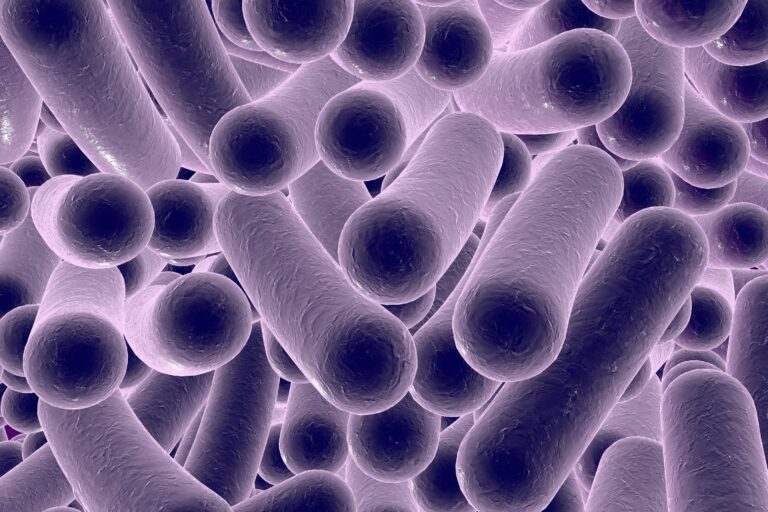Causes of Clostridium difficile infections
The main cause of a Clostridium difficile infection is the disruption of the normal intestinal flora, which is often caused by the use of antibiotics. Antibiotics can not only kill harmful bacteria, but also Beneficial intestinal bacteriawhich creates an ideal environment for the growth of C. difficile.
Glyphosate and Clostridium difficale infection
Glyphosate has serious consequences for the stomach and intestines and negatively affects the intestinal flora. One problem with the use of soya in animal husbandry is that the glyphosate content in the meat of pigs and poultry fed with industrially produced feed has similar effects to direct glyphosate application.
An imbalance in the microbiome triggers practically all degenerative processes. If we destroy beneficial bacteria on a daily basis with unhealthy, contaminated and residue-laden foods, such as meat from animals fed on genetically modified soya, the risk of this happening increases even more.
The shikimic acid metabolic pathway is a seven-step metabolic pathway used by bacteria, fungi and plants to produce important aromatic amino acids such as phenylalanine, tryptophan and tyrosine. Beneficial bacteria play an important role in this process. If these die off, the microbiome is disrupted, which can lead to Clostridium difficile infections in humans.
Symptoms of a Clostridium difficile infection
The symptoms of a C. difficile infection range from mild diarrhoea to serious intestinal inflammation. The most common symptoms are watery diarrhoea, abdominal pain, fever and nausea.
Is Clostridium difficile contagious?
Yes, the Clostridium difficile bacterium is infectious and is primarily transmitted via faeces. If the patient does not wash his or her hands thoroughly after using the toilet, the bacteria and its spores can be transferred to objects and the environment and thus remain infectious. People who touch these objects can also pick up the pathogen or its spores.
Medical treatment
The medical treatment of Clostridium difficile often includes the use of specific antibiotics such as metronidazole or vancomycin. If necessary, a faecal transplant can be performed to restore the intestinal flora.
Natural treatment options
As an alternative to medical treatment methods, it is possible to resort to natural remedies. The European blueberry has been used in traditional medicine for almost a thousand years and its edible fruit of blue or purple colour and its leaf have proven to be effective. The leaves and green shoots contain catechin tannins and pro-anthocyanins. It is also used to treat diarrhoea, as tannins have antibiotic properties (Rácz, Rácz-Kotilla, Szabó, 2012).
Blueberries have an antibacterial effect, which has also been proven for E. coli, Salmonella, Clostridium, Streptococcus and Staphylococcus aureus.
Sorrel is the most important herb in the complementary therapy of Crohn's disease. Pharmacologists Z. Kisgyörgy and M. Péter from Cluj-Napoca investigated the effects of Rumex species, which are frequently used in folk medicine, in the field of pharmacognosy.
Rácz, Rácz-Kotilla and Szabó (2012) obtained similar results. They found that Rumex acetosa L. does not affect the beneficial bacterial species and strains in the gut microbiome. It was experimentally shown to inhibit the development of enterobacteria.
The extract of the fruits of Rumex spp. inhibits bacterial growth, as reported by Bernáth et al. (2001).
In addition to the herbs mentioned Fulvicherb - Synergy also Apple pectin and inulinwhich are important for the beneficial intestinal bacteria.
Prevention
To prevent C. difficile infection, it is important to use antibiotics responsibly and follow good hygiene practices such as regular hand washing. In hospitals and care facilities, strict infection control measures are crucial.

